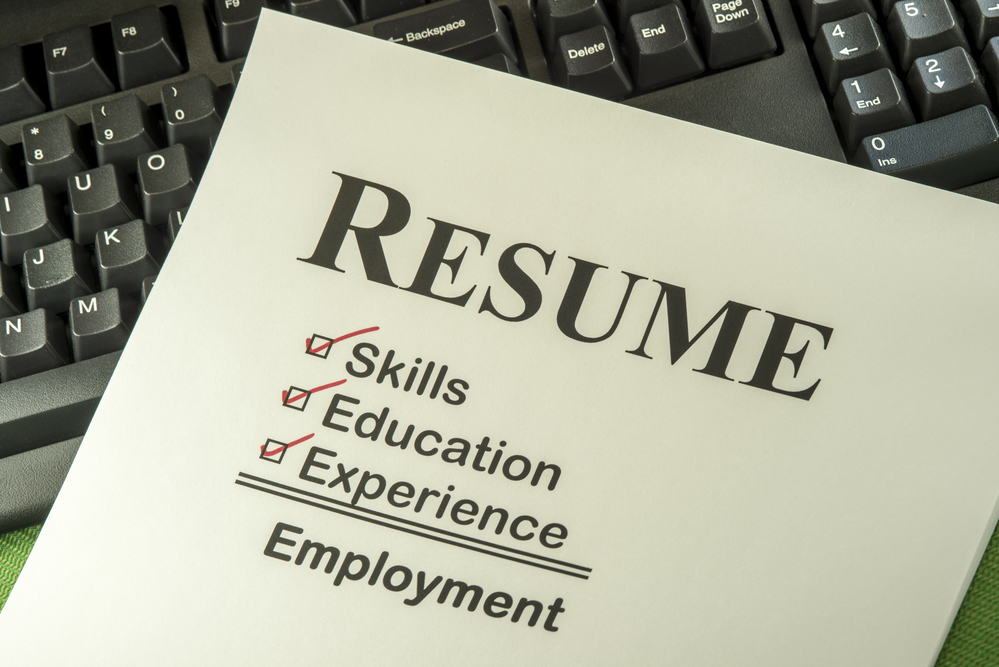Many people can get discouraged when faced with a task of writing a resume. However, writing a great resume is not as difficult as it may seem at first, provided that you have the right skills and knowledge.
The first thing you need to know when writing a resume is that it’s different than a CV. Unlike a CV, a resume is a short summary of your skills and should not be longer than one page. The primary goal of a resume is to win you an interview with potential employers, which means that you have to grab their attention as quickly as possible.
A resume should be short and impactful (you can think of it as an advertisement of your knowledge and skills) and most importantly, it should tell a hiring manager that you are the best person for the job.
While there is no general guide to writing a good resume, there are always certain rules that you need to follow if your resume is to make an impact. We have prepared a list of tips that will help you write a job-winning resume.
Choose a Proper Format
As a matter of fact, many resumes get rejected because they have not been formatted properly.
If you don’t have experience with writing resumes, getting started can be quite tricky. For starters, you will need to choose a resume format. There is no universal standard for formatting a resume but the three most common formats include: Chronological, Functional and Combination.
- Chronological format is the most common of the three. If you choose to use this format, keep in mind that the emphasis is on work history. Your employment history will be listed in reverse-chronological order, starting with your most recent job position. This format is ideal if you have an extensive work history. Don’t use it in case you’re only beginning your professional career.
- Functional resume format puts an emphasis on skills and experience. This is the format that works best for people who are often changing jobs or have gaps in their employment history. It’s also ideal if you possess expert level skills in your job industry.
- Combination resume is the way to go if you have a great deal of experience but the main disadvantage of this format is that can be overly long.
Include Contact Information
Obviously, your name should be included first and be put in bold (the style will depend on the format you choose).
Include the following basic information:
- Your email address.
- Phone number.
- Billing address (optional).
Write a Short Introduction
Resume writing experts agree that this is the essential part of the resume. A short resume introduction tells recruiters who you are, what are your main skills and experience, as well as your career goals.
A good resume introduction should:
- Be no longer than five sentences.
- Tell the employer how your skills and experience are relevant to their needs.
- Be straight to the point and direct.
- Avoid generalizations and generic descriptions.
- Provide a brief summary of your skillset, experience and work history.
Provide a List of Your Skills and Experience

Needless to say, this is the most important part of your resume where you show the employer what kind of skills you possess, as well as your previous work history. Don’t include job positions which are not relevant to the position you’re applying for.
List only the skills that you think may help you win the job and even more importantly, include your biggest professional achievements. Nothing works better than a proven track record of success in your job industry.
Keep it Short
Employers don’t like to read lengthy resumes. Chances are that a resume longer than two pages is going to get rejected in a matter of seconds. If possible, your resume should be one or one and half page long.
Proofread for Spelling and Grammar Errors
No matter what you do, your resume will contain spelling and grammar errors. Using a spell checking software won’t be enough, you need to check your resume for spelling, grammar and style errors manually, at least twice to make sure everything is in perfect order.
Make It Stand Out
As we pointed out earlier, one of the main goals of a resume is to attract the employer’s attention. In order to do so, you will need to be original and know how to present yourself in the best way possible.
Don’t be afraid to think outside of the box. Best resumes should be attention-grabbing and stand out from the rest.
Things to Avoid
Here’s a short list of things that you need to avoid when writing your resume:
- Don’t put an image of yourself.
- Don’t exaggerate your skills or list the ones you don’t have.
- Avoid long sentences and paragraphs.
- Never list your private and personal information.
- Don’t put contact information in the header.
- Spelling errors.